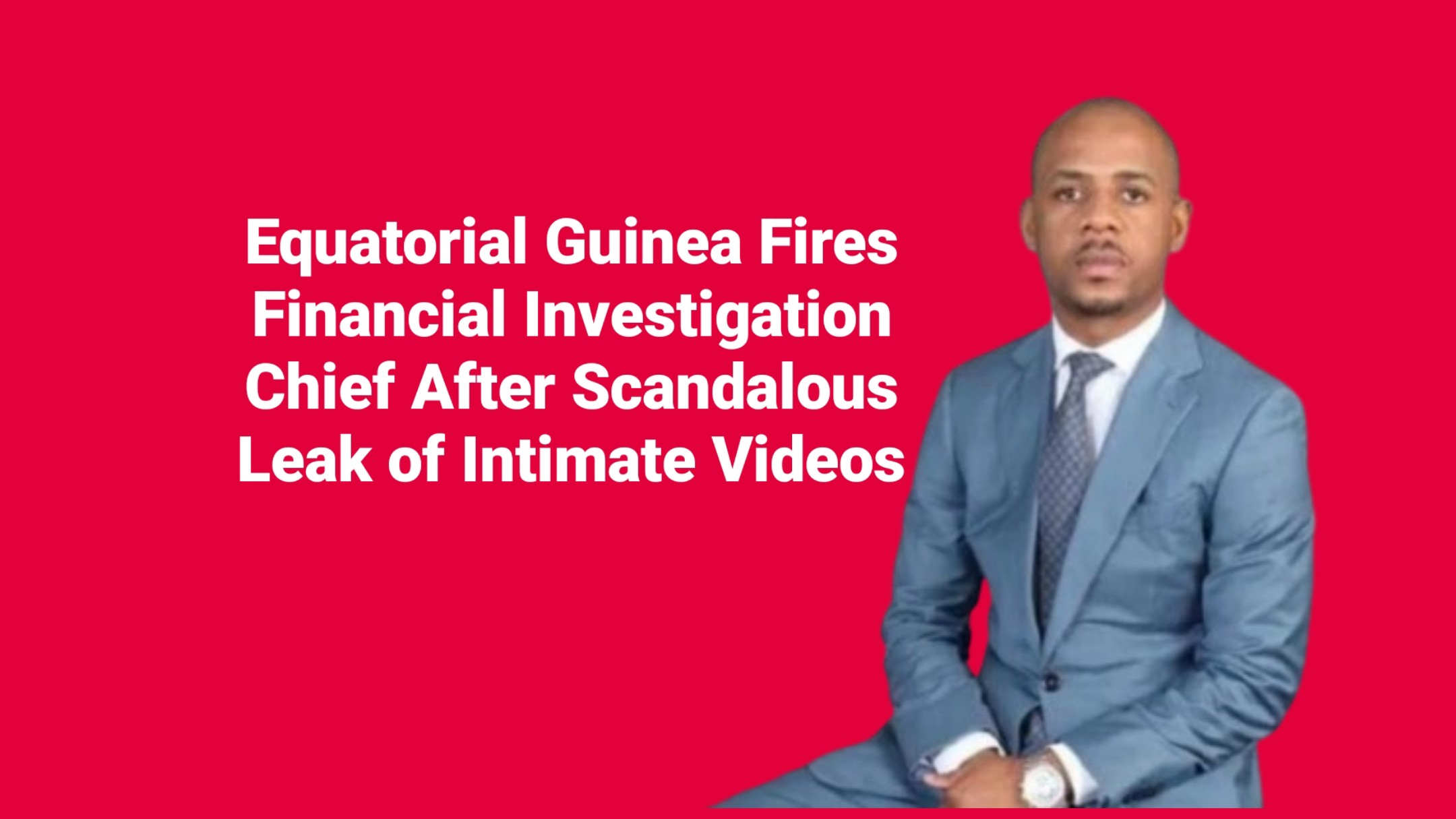
Equatorial Guinea Fires Financial Investigation Chief After Scandalous Leak of Intimate Videos
 The government of Equatorial Guinea has officially dismissed Baltasar Ebang Engonga, the Director General of the National Financial Investigation Agency (ANIF), following the leak of explicit videos involving him and multiple women. The widely circulated tapes have caused a major scandal, drawing the attention of both the public and high-profile figures within the country.
The government of Equatorial Guinea has officially dismissed Baltasar Ebang Engonga, the Director General of the National Financial Investigation Agency (ANIF), following the leak of explicit videos involving him and multiple women. The widely circulated tapes have caused a major scandal, drawing the attention of both the public and high-profile figures within the country.
Initially, Mr. Engonga was suspended after over 400 alleged intimate videos surfaced online, showing him in compromising situations with various women. Many of these individuals were reportedly linked to influential personalities in Equatorial Guinea, further amplifying the impact of the scandal.
According to reports from Real Equatorial Guinea, President Teodoro Obiang Nguema Mbasogo ordered the dismissal of Mr. Engonga through Decree No. 118/2024, issued on November 4. The decree cited misconduct in office as well as inappropriate family and social behavior that was deemed incompatible with his public duties. Notably, Mr. Engonga is the son of Baltasar Engonga Edjo, the current president of the Economic and Monetary Community of Central Africa (CEMAC).
Further reports from state television station TVGE revealed that the explicit videos were leaked during Mr. Engonga's detention at Malabo’s infamous Black Beach prison, where he was held over allegations of embezzling public funds. The tapes quickly spread across social media platforms, causing a major uproar and prompting swift government action.
In response to the scandal, Vice President Teodoro Nguema Obiang Mangue instructed the country's telecommunications ministry, regulator, and service providers to take immediate steps to curb the distribution of pornographic content. He emphasized the government's commitment to protecting families from the damaging effects of such viral material, especially given the sensitive nature of the situation involving a high-ranking official.
The situation has escalated with Equatorial Guinea's chief prosecutor, Anatolio Nzang Nguema, announcing potential legal action. He stated that if medical examinations confirm that Mr. Engonga has a sexually transmitted disease, he could face charges for endangering public health. The prosecutor's remarks indicate the gravity of the accusations and the potential consequences Mr. Engonga could face beyond his dismissal from office.
This incident marks a significant moment in Equatorial Guinea's political landscape, raising questions about the conduct of public officials and the implications of such scandals on governance and public trust. The case continues to unfold, with authorities promising further investigation into the matter.
Copyright © 2025 Amazing Stories. All rights reserved.